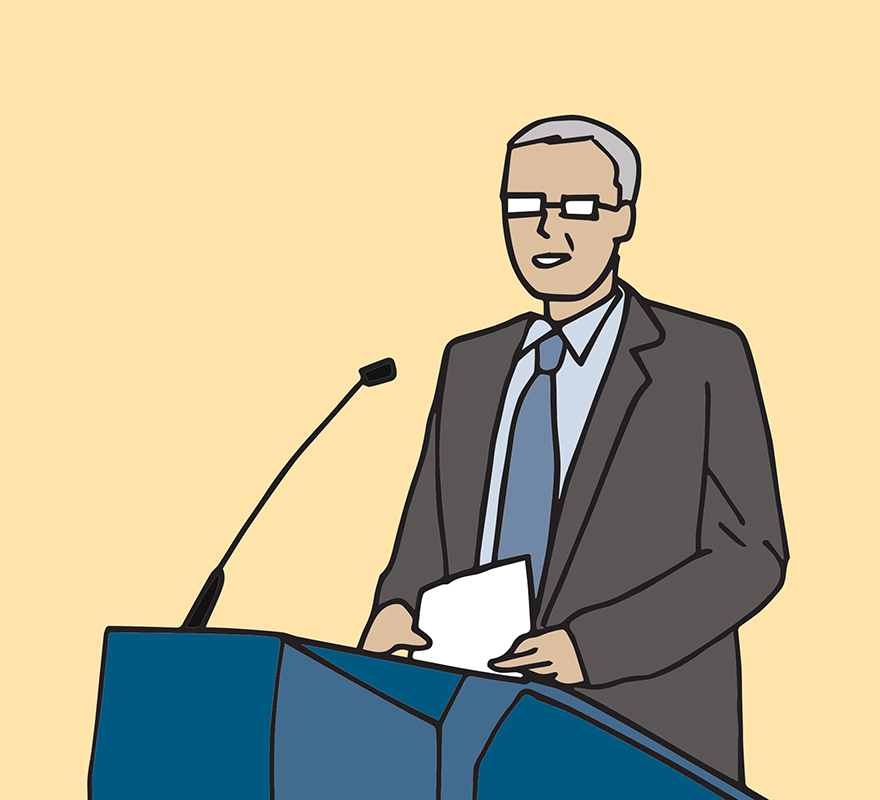Article written by Étienne Lajoie and Matthew Lapierre
Concordia president talks funding, pension plans and sexual misconduct
Concordia president Alan Shepard sat down with The Concordian on Monday, April 9 to answer questions about government funding, library employee pension plans and the university’s handling of allegations of sexual misconduct.
Q: In its 2017 budget, the federal government invested $117.6 million to launch the Canada 150 Research Chairs competition to “boost Canada’s brain gain.” Twenty-four chairs previously working in the United States were brought in. Has or will Concordia benefit in any way from this funding program?
A: We did apply for that grant; we didn’t get it, but we got others. One would be the Canada Excellence Research Chair program. There were 11 chairs given out to nine institutions. We were one of the nine universities, so that comes with $10 million in funding.
Q: How does that work? Do you receive funding and then reach out to researchers?
A: These processes are very complicated and highly audited. We have the opportunity to hire a chair. We have to identify that person, they have to be vetted and ratified by an internal committee at Concordia, then it goes to the federal government for further ratification. The person you are proposing has to be a strong international player. Then, if that’s all accepted, the person arrives and you get the funding over a number of years.
Q: There seems to be a disagreement between the university and the Concordia University Library Employees’ Union concerning pay cuts that the library employees have had to take. Both agree there’s more money going to the pension plan. Does the university intend on sitting down with the union to solve this apparent conflict?
A: We are in a period of negotiations with many unions. The government, two years ago, adopted pension reform legislation for our sector. What had been happening is Concordia had been paying 80 per cent of the pension contribution, and the employees paid about 20 per cent. And as it happened with public sector employees, the government had a desire to make it either 50/50, or 55/45, where the institution pays 55 per cent and the employee pays 45 per cent. Those were the parameters.
When you go from contributing 20 per cent to 45 per cent of your salary to the pension plan, that’s noticeable. We did a lot of preparation over a year and half to get people to understand that. We’re in negotiations, and we’re mindful that employees have had to pay more.
Q: The Concordian obtained a statement written by Emma Moss Brender, the department of philosophy’s chair assistant, regarding allegations of sexual harassment in the department. Would you like to comment on these allegations?
A: We feel like the university has been proactive with these files. Since I arrived at Concordia, my team and I have been working in a proactive way to make sure the environment we have is safe, respectful and appropriate. When we have allegations, we investigate them. If the investigation shows some kind of sanction is warranted, we don’t shy away from that. I do think over the last seven years every university has had cases where lines have been crossed. I do think the cultural milieu has changed from even when I began my career.
Q: Concordia provost Graham Carr was part of a delegation of university executives who visited Switzerland’s post-secondary institutions from March 25 to 29. Can you tell us why Carr was part of this delegation, and how Concordia will benefit from this?
A: Quality Network for Universities is a national organization, and it tries to provide professional development opportunities for senior leaders of universities. One of my criticisms of the Canadian higher education system is sometimes that it operates in a bit of a bubble. Switzerland is one of the most innovating countries [in higher education], so we’re always trying to figure out how we can either emulate or borrow ideas from other jurisdictions.
Graphic by Zeze Le Lin
